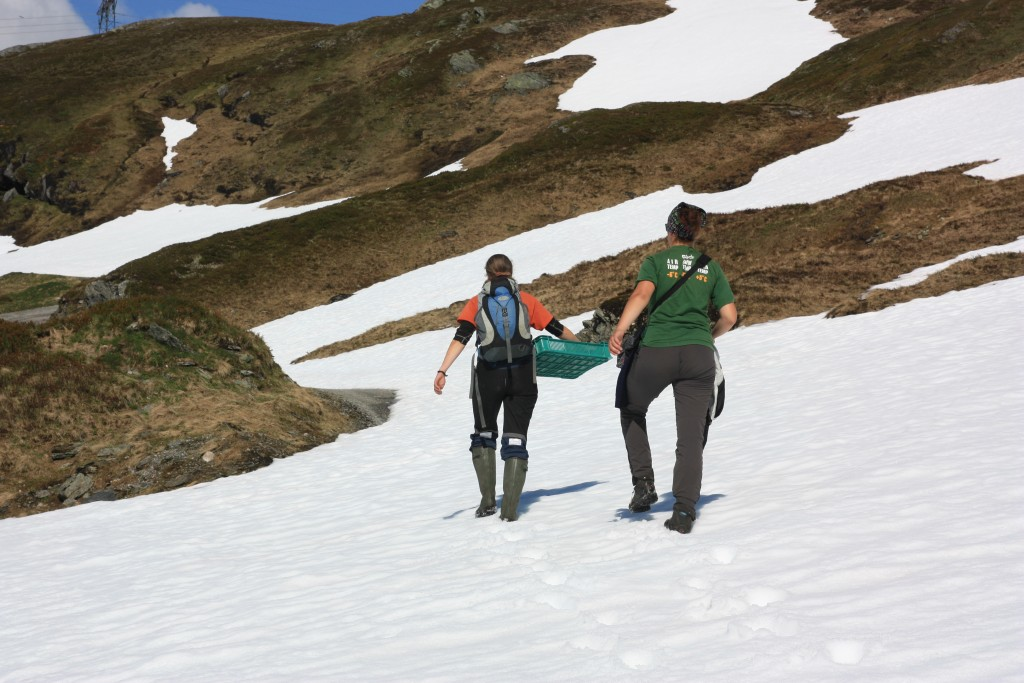
The role of genetic and epigenetic changes and trait variation in adaptation of a clonal plant to changing climate
Zuzana Münzbergová, Věroslava Hadincová, Jana Knappová, Hana Skálová
We aim to understand the ability of species to adapt to a changing climate using data on genetic and epigenetic patterns and range of morphological and physiological traits and susceptibility to herbivores of individuals originating from natural populations of a widespread clonal species Festuca rubra distributed along grid of independent temperature and precipitation gradients and from transplant experiments using both seeds and clonal ramets transplanted along the grid. We link data on traits of plants originating from different climatic conditions but cultivated under standardized conditions with data on genetic structure of the plants obtained by microsatellite analysis. In addition, we explore performance and genetic composition of plants surviving after reciprocal sowing and transplantations simulating realistic climate change. We also explore the effects of experimental plant demethylation on the patterns to assess the importance of epigenetic differentiation of the populations.
Collaboration:
Vigdis Vandvik, Ecological and Environmental Change Research Group of the University of Bergen, Norway
Daniel Haisel, Institute of Experimental Botany, Czech Academy of Science
Publications:
Münzbergová Z, Šurinová M, Biscarini F, Ničová E (2024) Genetic response of a perennial grass to warm and wet environments interacts and is associated with trait means as well as plasticity. Journal of Evolutionary Biology 37: 704–716. https://doi.org/10.1093/jeb/voae060
Münzbergová Z, Hadincová V, Skálová H, Vandvik V (2017) Genetic differentiation and plasticity interact along temperature and precipitation gradients to determine plant performance under climate change. Journal of Ecology 105(5): 1358-1373. https://doi.org/10.1111/1365-2745.12762

